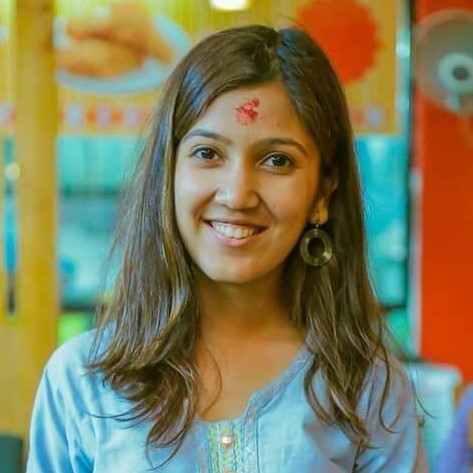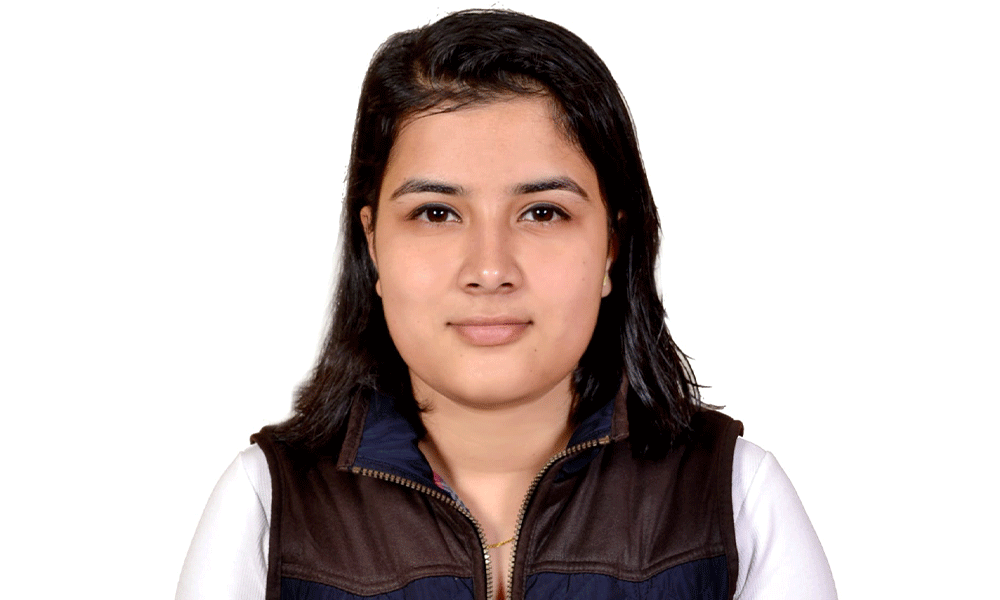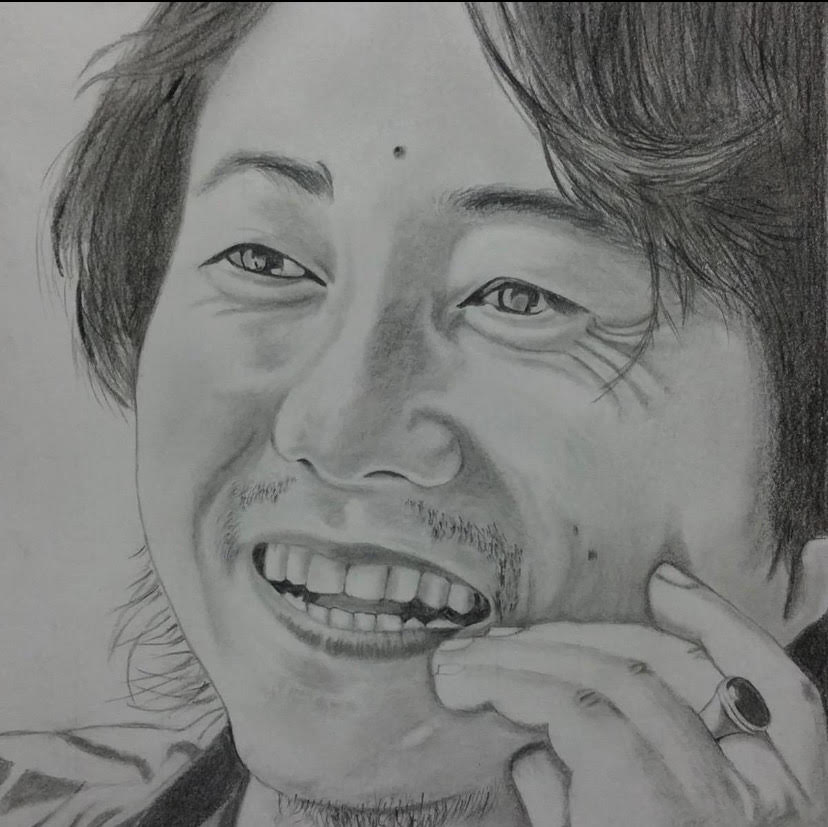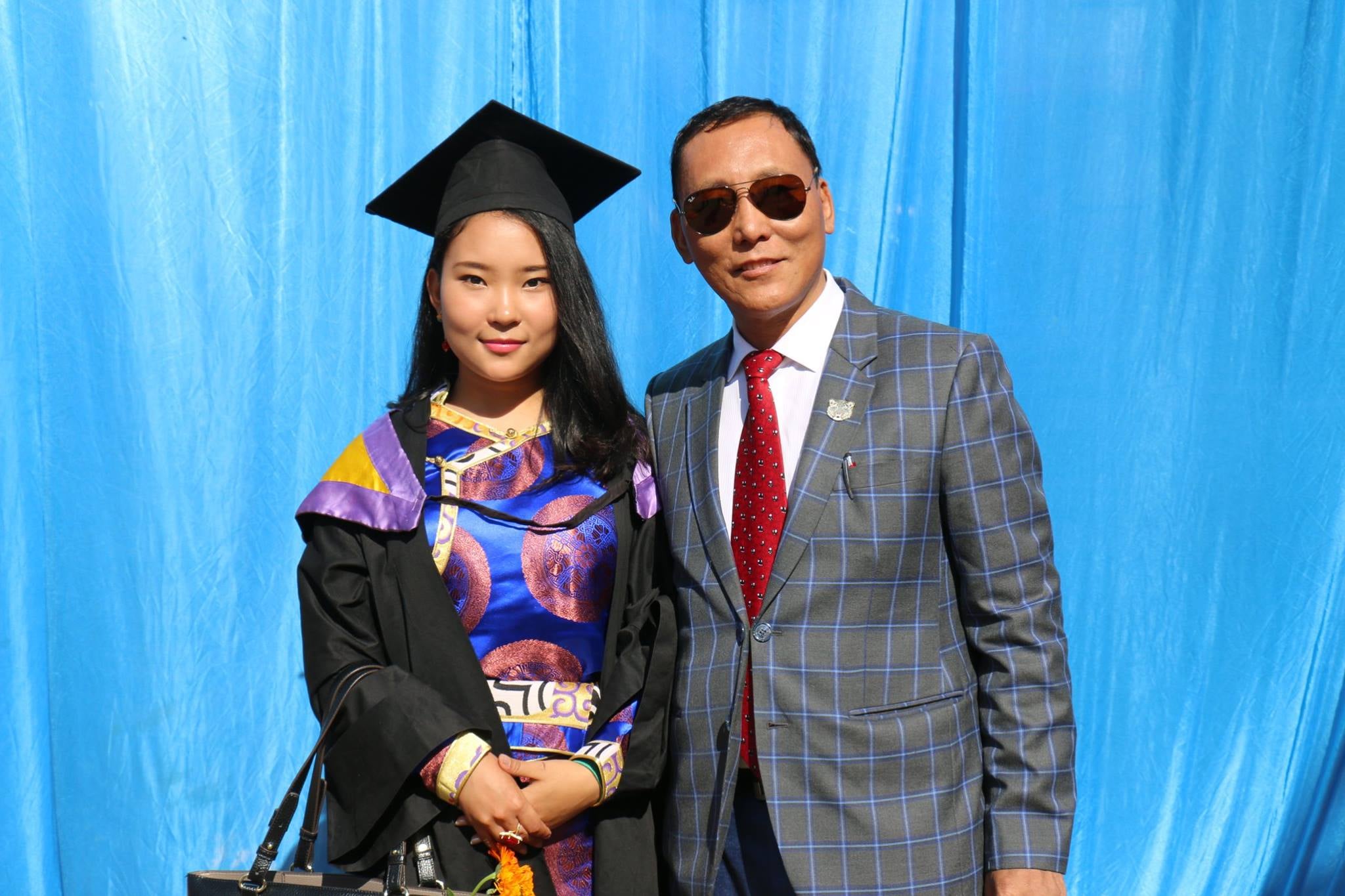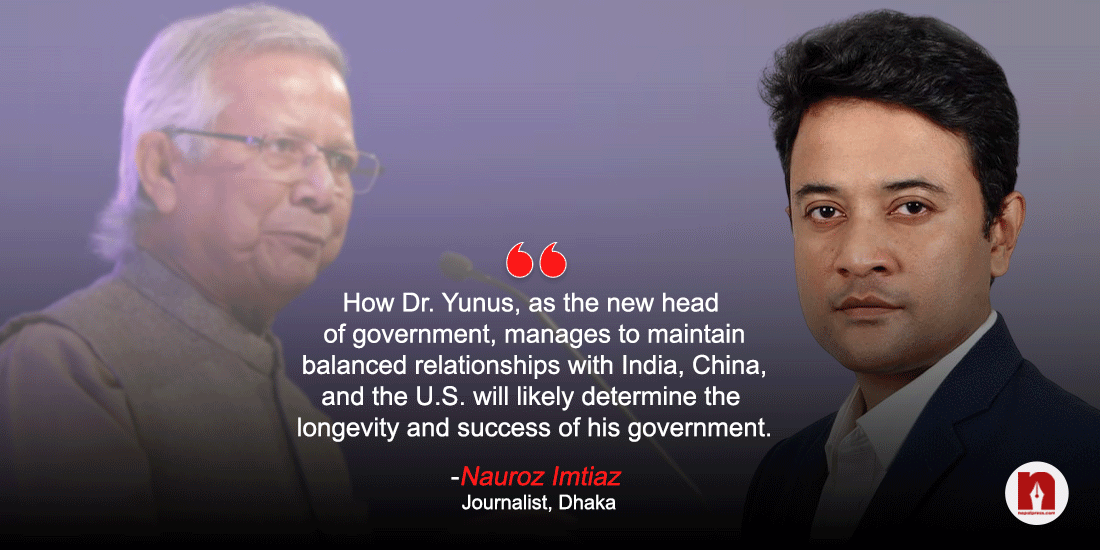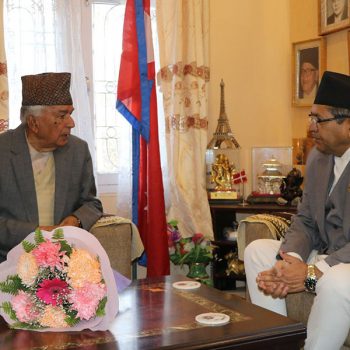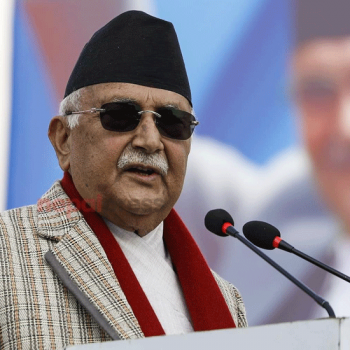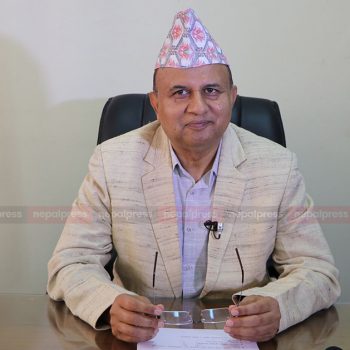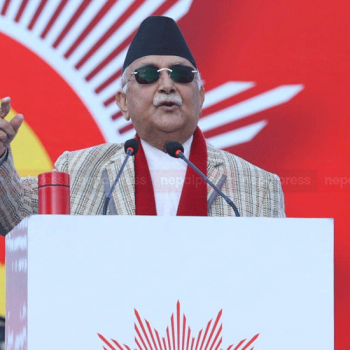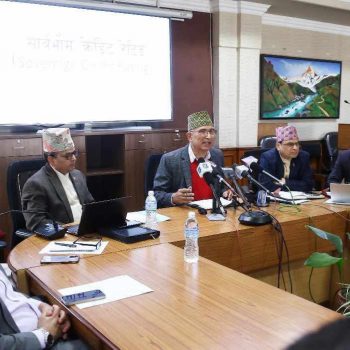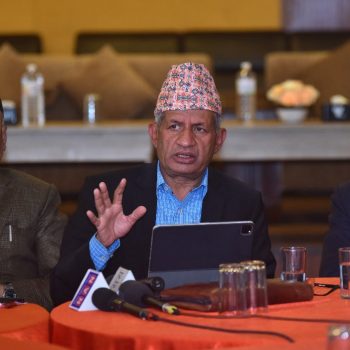I’m sorry, but your beauty does not empower me!
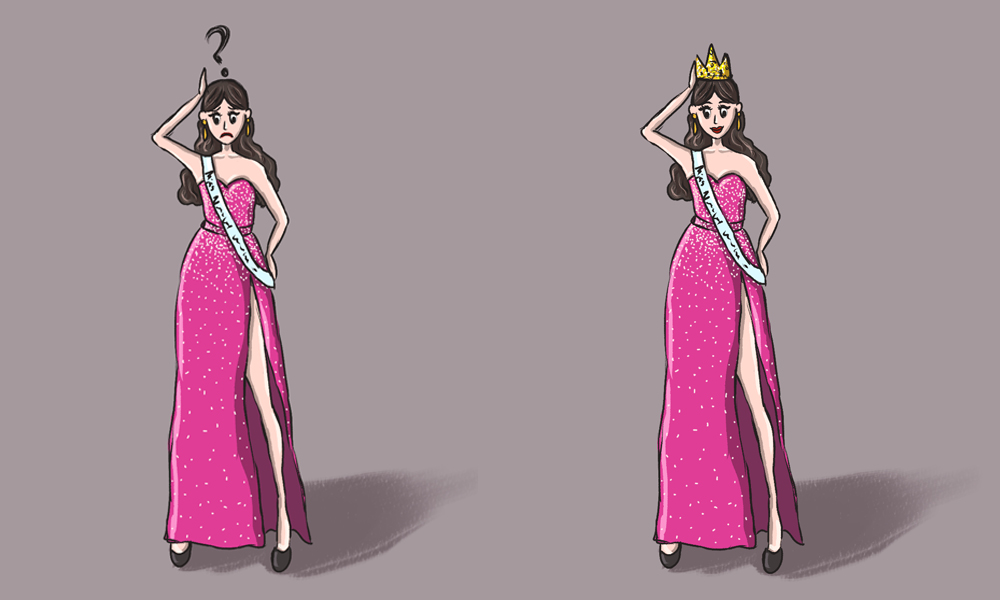
One day, while using social media, a post caught my eye. This year’s Miss Nepal Universe Anshika Sharma was wearing a white outfit normally worn by mountaineers; my attention was immediately drawn, as this was different from the outfits generally worn by the other Miss-Nepals.
Donning a white jacket and trousers, thick boots, and a gray mask and gloves, she was representing Nepal at a round of Miss Universe in Florida.
That image garnered huge applause on social media. However, when I watched the video, it looked to me as if she was walking slowly, like she was uncomfortable doing so. It seemed a little strange to me that this would be the case with someone so confident, so I thought it probably was just in my mind. After all, Anshika did look proud of her presentation. It was said that the outfit was an attempt to honor Nepal’s mountains and Nepali Sherpas.
I don’t know if Sherpas were happy with her effort. However, I saw two different kinds of opinions circling social media. Some were congratulating her efforts and applauding her for enhancing the pride of Nepal, while others were saying that she had insulted the Sherpa culture by trying to represent them without an understanding of history.
I grew up watching beauty pageants. I still remember when I first watched Miss Nepal on Nepal Television. Preeti Sitaula was crowned Miss Nepal, which was around 2003. I continued watching Miss Nepal for a few years. I used to mimic the participants by looking at the mirror and saying ‘Hello, Everyone’ loudly and confidently, just to myself.
Little did anyone know that this little girl would grow up to shed light on how Miss Nepal lowers the confidence and morale of women.
My opinion towards Miss Nepal changed as my understanding and awareness levels increased. How wouldn’t it? Apparently, not everyone can become Miss Nepal because they want to. Why, you ask? Well, my height is contained at 5’1. That itself is enough for me to fail in terms of ‘beauty’, in the very first criteria itself.
Beauty pageants, inclusion and women empowerment
When it comes to beauty pageants, there is one phrase used by everyone from the contestants to the MCs to the panel of judges, and that is – women empowerment. I personally believe that this is an insult to the word itself, and strongly object to the use of this word in beauty pageants.
Bitter as it may be, my question to those who say that these pageants empower women is: Do the women ‘empowered’ by your pageant represent all of Nepal? What geography do they come from? What economic class do they belong to, and do these women really need ‘beauty pageants’ to empower them?
At the risk of sounding harsh, I believe that it may be personal or individual empowerment when a Nepali woman who has returned after studying or working in Australia/London/USA thinks about and is trained on how to bring the pageant title home, but I seriously doubt that this can be called ‘Women Empowerment’.
How appropriate is it to use the word ‘empowerment’ where glamor is the primary focus?
You are probably mocking a lot of people with the use of the word in this context. We know, very clearly, that a young woman from Karnali cannot compete in these pageants even if she meets the criteria of beauty, due to financial reasons.
We know that we cannot suggest those with very strong intellectual abilities dream of becoming Miss Nepal.
After all, what is this ‘empowerment’ about, and for whom? Where there is no representation and inclusion of the whole of Nepal and no space to accommodate those from all socioeconomic statuses and classes – in which a person’s height and gait are judged at the very beginning, but the ability of their minds is not the primary focus.
In my opinion, these pageants are becoming ambassadors or flag bearers of beauty standards, where participants are taught to speak politely and talk about spreading awareness in their countries, all in an effort to win the title and bring the crown home.
Your personality has become a product, and you are now molding it to fit into a specific and very small box.
Simone de Beauvoir explains in ‘The Second Sex’ that ‘ideal femininity’ prevents a woman from exercising her freedom of thought, liberty, and intellectual ability. Isn’t it restrictive for you to be asked to speak, walk and answer questions in a certain and specific way?
The use of words like ‘inclusive’ and ‘empowering’ should only be done when things other than glamor are prioritized. Please don’t use words with such seriousness and depth of meaning as taglines for your very colorful and extravagant pageants.
Identity, pride, and representation
Whenever there is an international level competition, Nepalis pour their hopes, passion, vigor, and love into the person that represents Nepal. In some respects, people associate it with country, society, and identity. When such programs are associated with these feelings, people are unable to watch and judge without prejudice.
When we see a person close to us and our culture, country, and language near the trophy or crown, we raise our hopes. And when we do not get the desired results, that hope turns into despair.
When we are about to vote, whether it is to make Prashant Tamang win Indian Idol or Teriya Magar win Dance India Dance, we pour ourselves into it wholeheartedly. We seek identity and recognition in them, trying to prove to the world that we are capable too. As long as we seek validation on such platforms, we will continue to ignore and negate other meaningful efforts that are being carried out to develop and advance our societies.
This time too, there were campaigns that said ‘Please Vote for Anshika’. I will not comment on whether this is right or wrong, but I will say that I do not want to be associated with this beauty trade.
When I was 7 years old, I may have understood that I should become Miss Nepal in order to do something significant. But today, I see it as a game of glamor. This competition is no different from modeling. I don’t see anyone like me or those around me participating in these pageants.
I now understand that I don’t need that shiny and pretty dress to say ‘Hello Everyone’. It is probably not necessary to watch the live broadcast of Miss Nepal on Nepal Television to see, watch and follow confident and empowered female personalities in the media.
Beauty products, sponsors, and markets
When Sushmita Sen and Aishwarya Rai were crowned Miss Universe and Miss World, India became a big market for cosmetic products. Vested interests of sponsors are often linked to both the initial round of pageants that take place in various countries as well as the finales that take place abroad.
How much of the cosmetic market can a small country like Nepal provide? Not much analysis has perhaps been done on this subject because we fail to look at the economic aspects of such competitions while talking about them.
Maybe this is because we cannot guarantee that Nepal can fulfill the interests of these sponsors and investors.
I wonder how much effort from Anshika went into thinking about these questions and answering them, but well, she never even got the chance to get there.
Exactly what I am trying to say; this is a game, just like gambling.
This is a trade – of beauty. Please don’t associate this with words like confidence, morale, ability, pride, empowerment, and identity. It doesn’t fit. And, I am sorry – but your ‘beauty’ doesn’t ’empower’ me.
Just a woman who failed to meet the standards of your glittering and colorful world!
Art by: Shiwani Magar


